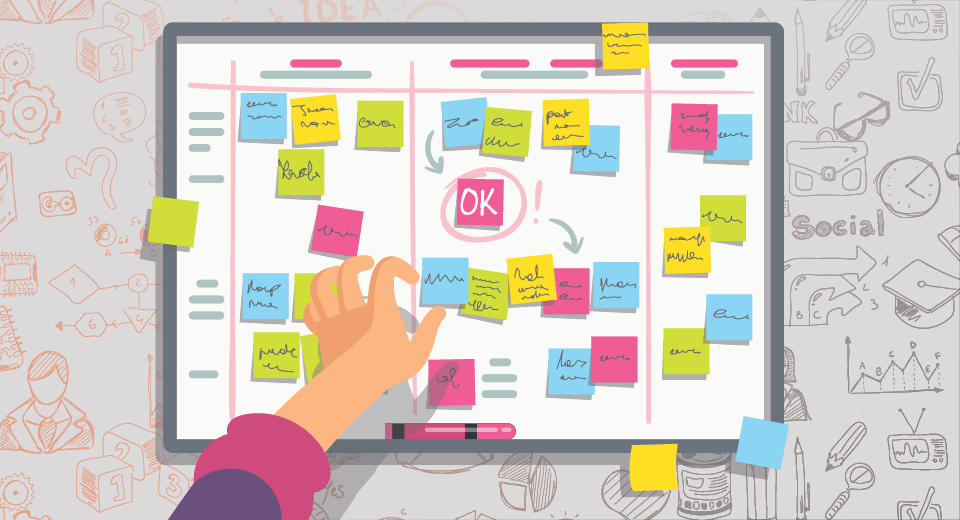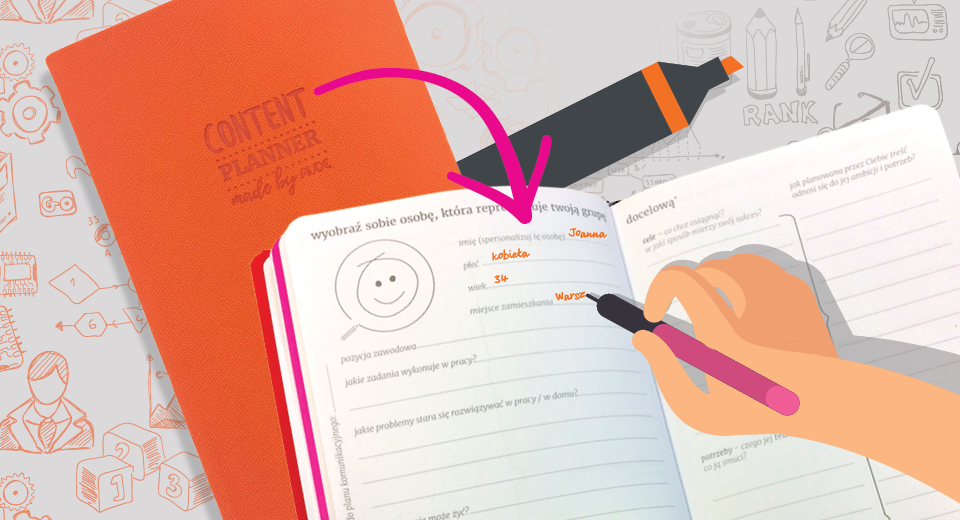
There is not single type of planning that 100% of the population would consider effective for them, but certain principles, habits and – note – tools are universal, and after a while using them will become second nature.
No matter what you are planning, first take a look at your project as a whole, as if you were trying to grasp the entire view of the landscape with a bird’s eye. Note down the basic assumptions, tasks and, most importantly, goals. When planning a week or a day, write down everything you need to do in that time – from an important meeting with a customer, through writing an article to making a vegan cheesecake.
Now that everything you have on your mind has been written down, start organizing tasks. It’s important that each group includes tasks that are somehow connected, regarding the same subject or ones that can be done at the same time. This way you’ll avoid going back to the starting point and teeth grinding after you discover you might have done something, but you didn’t because you forgot.
Such logical tasks allocation will help you control millions of unsettled thoughts to let you gain peace of mind. All that’s left is to strike off the tasks on the list one by one and… to plan new groups;)

If there are tasks on your list (and surely there are) which require much focus or which cause anxiety, try to plan them for a moment when you are most creative and well-rested – it will be much easier. If you choose morning hours, you can get them off your chest early on and then proceed with less frustrating matters.
Complex tasks – such as developing a comprehensive offer for a customer or writing a long article with quotes from other sources – it’s good to divide them into smaller stages. Even a few-day stages, if there is enough time. Before starting a new stage, take a look at what you did the day before and make corrections. This division increases your efficiency and will not let you overtax yourself, as you would completing the task at one go.
If you tend to start several things simultaneously, you can mark your priority tasks that require much focus with a red exclamation mark to remind you, that anything less serious than an earthquake should not distract you from them.
Do not plan rigid deadlines, allow for at least short time brackets. It is probable something unexpected will come up, so it’s better to save yourself additional stress. You can use the method of planning 60% of your time (e.g. during the day) and leaving the remaining 40% for the possibility something takes longer, there are unexpected difficulties, you need to go to an additional meeting or make an additional phone call, or any other external obstacles. Naturally, the proportions may be different, e.g. 70 to 30% or 80 to 20%, depending on how complex your task is. Give yourself a sense of safety.
Most of us surely know that feeling of anxiety when we forget to take the phone with us. We picture the whole world calling us, and we think something most important in our life is fleeing. But in most cases it turns out in the end, that nobody wanted anything, or somebody did call, but the fate of the world did not depend on it. Whenever you really need to focus, like when you’re planning something important, give yourself a little bit of luxury and tune out for an hour. The world will survive. You will save your time and complete the task faster and more productively if no one bothers you on Facebook, via email or calling you about the Saturday excursion outside the city. It may be difficult in the beginning – the habit of checking all the time if anything came may be stronger than you, but with time you will acquire the valuable skill of isolating.
Before you start planning a project, take a moment to think about the execution, are there any factors that could help? When I write an article I image the person who is going to read it, who that person is, what content and in what form he or she may be attracted by. I write down my first thoughts, make a list of things I need to do to get as much content as possible (reading a publication, talking to someone etc.) You can use sticky-notes or a notebook, but there is also a tool which will simplify matters for you, mainly…
Developed for people with plenty of things to do every day who want to get organized. The planner allows to look at a project in a wider aspect, define your audience, organize the chaos inside your head and to keep all important information and notes from meetings in one place. In other words, it helps to plan your work and pursue your goal, which is only a wish without a plan. These words byAntoine de Saint-Exupéry became one of the mission statements for our planner. We are happy to see it is appreciated by our customers, who are coming back for another issue when the first one is “complete”. We are excited that the planner is working so well, which is why we’re also using it on a daily basis☺

Let’s face it – planning is not an easy job. Especially in the beginning, when it is really difficult to estimate the time needed to execute a given task. But it is getting gradually easier, if you learn your own habits, see your strengths and weak sides, learn on your mistakes and polish the skill of planning. You will appreciate it the moment you start to notice you gain precious time that you can devote to your own pleasures, it’s worth it!
Kategorie: school of contentic